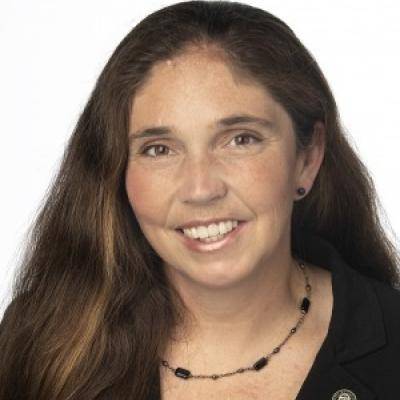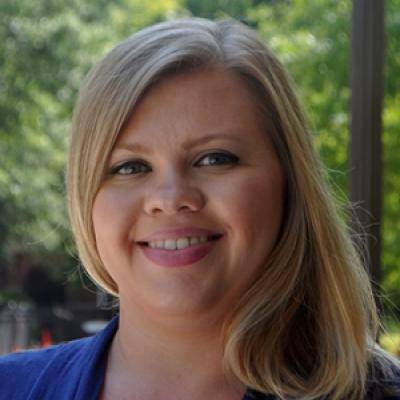Georgia high school students learn through hands-on engineering projects.
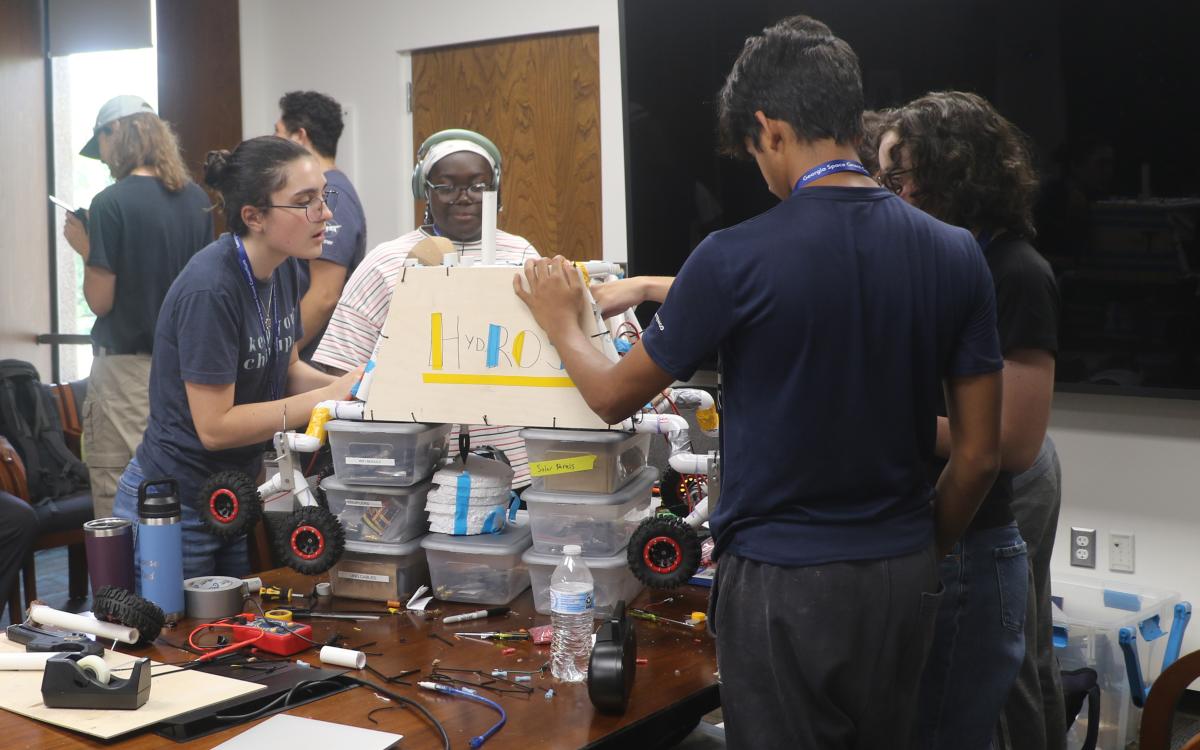
STEP students working on their rover.
The Science, Technology, and Engineering Program (STEP) is a free summer camp open to Georgia students, and it all started in the basement of the Weber Building at Georgia Tech. Kelly Griendling, a determined research engineer at the time and now a lecturer in AE, dreamed of introducing high school students to aerospace engineering, and the Aerospace Systems Design Laboratory (ASDL) gave her goal wings to fly. Ten years later, the program has evolved and expanded to a second location in Albany, Georgia, fueling the pipeline internally and externally.
“The STEP camp is vital because it offers a risk-free opportunity for students to learn about engineering and determine if it's the right path for them. Many students haven't had the chance to explore engineering before attending the program and often discover that they truly enjoy it. This experience significantly boosts their confidence in their potential for success in this field, Griendling shared.”
STEP brings high school students to the Daniel Guggenheim School of Aerospace Engineering (AE) for two weeks to complete an open-ended, hands-on aerospace design challenge. They collaborate and learn from AE student mentors, faculty, and staff. This year, 50 students, divided into nine teams, were tasked with designing a moon or Mars-based mission using a rover.
On the final day of camp, they had to design, build, and test their rovers and then present their projects to a live audience. The campers' presentations were a testament to their hard work, dedication, and the skills they had developed. They explained their projects, the challenges they faced, and how they overcame those struggles as a team to be successful.
For the past five years, Alysia Watson, Georgia Space Grant Consortium (GSGC) program coordinator, has been instrumental in STEP’s success. Her meticulous planning and coordination ensure that all aspects of the camp run smoothly. “I start prepping for the camp as early as December,” Watson shared, highlighting the effort that goes into making the camp a success.
STEP Camp Presentation Day
STEP is made possible by a strong and sustained partnership between GSGC and GTAE, and the generous financial support of Lockheed Martin, Boeing, the Georgia Space Grant Consortium, and Karen Feigh through the Starlit Research Project. Their contributions enable students to learn everything from engineering design, 3D printing, circuitry, manufacturing, and computer-assisted design to problem-solving and teamwork.
Team 1-SARS
Team 2- SOAR
Team 3 - MAGMA
Fueling the Pipeline to Georgia Tech
Parth Garud and Nikhil Iyer are great examples of students who completed the camp, became AE students, and worked as mentors in the STEP camp to give back.
Garud attended STEP virtually in 2020 while on lockdown during the COVID-19 pandemic. AE shipped the parts to students’ homes, and students conducted their presentations virtually. Even as a high school student, he knew he wanted to study engineering, and STEP brought that aspiration one step closer.
“Working with Dr. Griendling at the virtual camp was a big part of my coming to AE. I wasn't super sure what I wanted to do. But meeting some of the AE faculty through the camp and working with the mentors shaped my decision to attend Georgia Tech and pursue aerospace,” Garud said.
In fact, he was a mentor to camper Iyer in the summer of 2022. Iyer learned a lot from Garud during that summer, and when Iyer was accepted to Georgia Tech, Garud encouraged Iyer to become a STEP mentor too.
“It was the summer before my senior year, and I wanted to get involved at Georgia Tech somehow. I emailed professors to see how to contact their labs, and then I found STEP. I immediately applied and was excited when I got the acceptance letter. Through the camp, I could see the labs, the engineering design process, and the true nature of engineering. I knew I wanted to be a part of Georgia Tech.”
Garud and Iyer are both active on campus and are members of the Georgia Tech Experimental Rocketry (GTXR) student organization, a subdivision of the Ramblin’ Rocket Club. They recently traveled with their team to the Mojave Desert to launch a rocket they had built over the past year.
(text and background only visible when logged in)
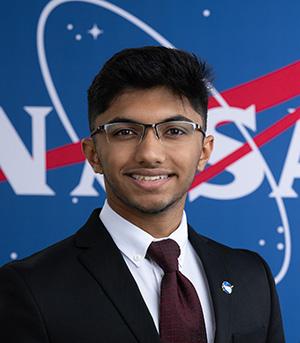
Mentor Garud Parth
Mentor Nikhil Iyer
Team 4- GEM
Team 5- BRATS
Team 6- SPES
The Importance of Helping Others
Mentors are at the heart of the camp. They work with AE faculty to prepare for the camp and gain in-depth knowledge about building rovers. Before the camp starts, the mentors must become experts in rover building to mentor the campers.
“We rotate six to eight mentors daily, so the campers always have someone to help them with their projects. The mentors get as much out of the program as the high school students,” Watson commented.
Devin Kelsey has been working at the camp for three years. He is passing his knowledge on to the next generation.
“I end up seeing a lot of the camp kids I mentored around campus and realize that they made it into the school, which is very rewarding,” Kelsey said. “It’s important to get your hands dirty to understand if engineering is for you. I didn’t get that opportunity, and I’m glad these students can do it.”
He isn’t the only mentor with three years of experience in STEP. Recent AE graduate Evan Sanchez, BSAE 2024, will return to AE in the fall to begin his master’s degree, but he spent his summer mentoring in the STEP camp.
“It’s a free camp that gives students, who may not get exposure to STEM otherwise, access to hands-on engineering, so it’s nice to be a part of something that is doing good and making a difference,” he said.
(text and background only visible when logged in)
Mentor Devin Kelsey
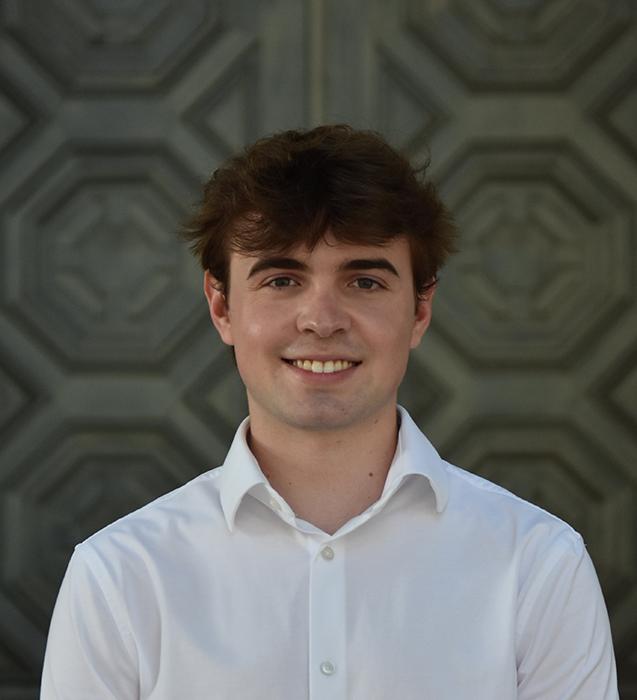
Mentor Evan Sanchez
Team 7 - SCAM
Team 8 HYD. B.O.S.
Team 9 - SCOUT
Where Are They Now?
STEP campers have advanced to pursue higher education and careers in STEM fields.
Austin Petit is a RF/Radar Systems Engineer in the Aerospace, Transportation, and Advanced Systems Lab in the Georgia Tech Research Institute. He is pursuing his Master of Science in Electrical and Computer Engineering (MSECE) from Georgia Tech and he attended STEP in 2014 and 2015.
“Participating in STEP helped solidify my career ambitions by allowing me to obtain hands-on experience while working alongside my peers and learning from highly knowledgeable faculty. It was undoubtedly one of the most memorable experiences of my high school summers,” Petit said.
Gavin Hudnall, who attended the camp in 2015, earned his Bachelor of Industrial Engineering at Georgia Tech, went on to become an Undergraduate Research Assistant in ASDL, and is currently an Associate at Roark Capitol.
Shriya Chakraborti is studying mechanical and aerospace engineering at Princeton University and attended the camp in 2022.
Anjali Yagnavajhala in May 2024, she completed Georgia Tech's Dual Enrollment in mathematics, and attended STEP in 2022.
Olaoluwa Oguneye is at Stanford University pursuing his degree in computer science. He attended the camp in 2023.
The campers proudly displayed their rovers before presenting to a packed room of Georgia Tech employees, STEP sponsors, AE faculty and staff, and family.
Pushing It Out of the Nest to Fly
In Albany, Georgia, 20 campers were tasked with building drones to solve an urban air mobility crisis of their choice. The camp expanded to a second location for the first time in 2023 thanks to the support of Professor Marilyn Smith and the Vertical Lift Research Center for Excellence, and Professor Kyriakos Vamvoudakis and the Center for Advanced Machine Mobility through the outreach component of their NASA University Leadership Initiative (ULI) grants, and the 4C Academy provided the space.
After two years under STEP, AE is transferring the Albany location to the 4C Academy. Representatives from the 4C Academy in Albany traveled to Georgia Tech to observe and study the camp to independently replicate the Georgia Tech model. What started as a dream is now being replicated to serve more students and fuel the pipeline.
“To me, the Albany program is one of our greatest success stories to date. I am thrilled that our partners in Albany are taking ownership of the program and striving to make it a sustainable initiative supported by their community,” Griendling shared. “This will ensure that students in South Georgia continue to benefit from these opportunities for years to come. It is my hope that we will be able to expand the program to other satellite locations using this model and bring these opportunities to more students.”
(text and background only visible when logged in)
Related Stories:
Georgia Tech STEP Camp Exposes Students to the Possibilities in Engineering
Now in its ninth year, the STEP Program at Georgia Tech is a free summer camp where high school students learn the engineering design process by completing task-based challenges.
Georgia Teens Build a Mars Rover in 12 Days
The annual Aerospace Engineering STEP summer camp gave area teens a peek of the life of an engineer
They Are Not Roasting Marshmallows at ASDL's STEP Summer Camp
For the 37 area high school students attending ASDL’s STEP (Science Technology and Engineering Pipeline) camp, there will be no “vinegar-and-baking-soda-does-what?” experiments this summer.
